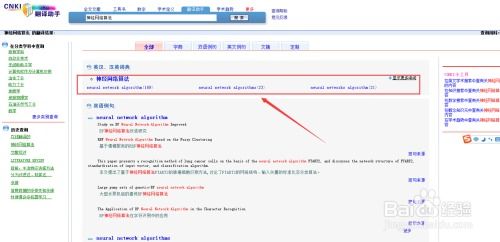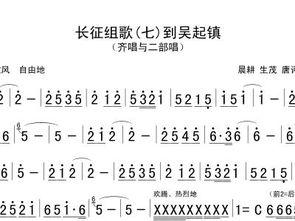探索“道理”的英语表达:如何精准翻译“道理”为英文?
In the realm of language and communication, understanding how to express concepts across different cultures and languages is crucial. One such concept that often requires translation is the Chinese idea of "道理" (dào lǐ). This term encapsulates a wide range of meanings, spanning from principles, reasoning, to the fundamental truths that govern behavior and understanding. Exploring the English equivalents for "道理" not only aids in cross-cultural communication but also deepens our appreciation for the nuances embedded within this versatile Chinese expression.

At its core, "道理" can be translated as "reason" or "logic" in English. It refers to the set of rules or principles that guide our actions and decisions, often derived from experience, observation, or philosophical contemplation. When we talk about following "道理," we imply adhering to a system of beliefs or rational thought that helps us navigate through life's complexities. This concept is central to many philosophical and ethical systems in China, where respect for tradition, wisdom passed down through generations, and logical consistency are highly valued.

However, "道理" transcends mere logic and reason. It also encompasses the idea of "truth" or "wisdom" that is universally acknowledged. This aspect of "道理" touches upon the fundamental truths about life, morality, and existence that are believed to be timeless and unchanging. In English, expressions like "the way things are" or "the natural order of things" come close to capturing this sense of universal truth. When we say something is "in accordance with 道理," we are asserting its alignment with these inherent truths, suggesting a level of inevitability or rightness to the action or belief in question.
In daily conversations, "道理" is often used to refer to the practical wisdom or common sense that guides our everyday actions. It's about understanding what is fair, just, and practical in any given situation. Here, an English equivalent could be "commonsense" or "practical wisdom." When someone advises, "You should do it this way; it makes sense (有道理 yǒu dào lǐ)," they are appealing to a shared understanding of what is logical and practical under the circumstances.
Moreover, "道理" is intertwined with the concept of morality and ethical behavior. In this context, it refers to the principles that define right from wrong, good from evil. In English, terms like "morality," "ethical principle," or "righteousness" are often used to convey this meaning. When we say someone is "reasonable" or "understands the right way to do things," we are implying their adherence to these moral and ethical standards. This aspect of "道理" emphasizes the importance of personal integrity, fairness, and respect for others in shaping our behavior.
Beyond individual morality, "道理" also applies to societal norms and collective behavior. It reflects the shared values and beliefs that define a community or culture. In English, expressions like "social norms" or "cultural conventions" serve as close approximations. When we talk about something being "socially acceptable" or "in line with cultural expectations," we are, in essence, referring to its conformity with the broader societal "道理."
The process of translating "道理" into English also highlights the dynamic nature of language and culture. Words and expressions evolve over time, influenced by social, political, and economic changes. As such, the English equivalents for "道理" may vary depending on the context, audience, and the specific nuances intended by the speaker. This fluidity underscores the importance of context in translation and the need for nuanced understanding when conveying ideas across linguistic and cultural boundaries.
In educational settings, "道理" is often invoked to promote critical thinking and rational analysis. Teachers might encourage students to "see the logic" or "understand the underlying principles" behind a concept or idea. Here, "道理" serves as a catalyst for intellectual growth, inspiring curiosity and a willingness to question and explore the world around us. In English, phrases like "making sense of things" or "grasping the underlying rationale" resonate with this educational use of "道理."
From a philosophical perspective, "道理" is closely linked to the concept of "Dao" (道) in Taoism, which refers to the fundamental principle or way of the universe. In this sense, "道理" can be seen as an expression of Dao in human affairs, guiding us towards harmony with the natural order. The English term "Tao" itself, though derived from the Chinese, is often used to convey this philosophical concept, albeit with the understanding that it carries specific connotations and historical baggage within the Taoist tradition.
In conclusion, the English translation of "道理" is a complex endeavor that demands a nuanced understanding of its various meanings and contexts. Whether referring to logic, truth, practical wisdom, morality, societal norms, or philosophical principles, "道理" encapsulates a rich tapestry of ideas that are fundamental to human understanding and behavior. By exploring its English equivalents, we gain a deeper appreciation for the versatility and depth of this Chinese expression, fostering cross-cultural communication and understanding in an increasingly interconnected world.
-
 问答揭秘:CNKI翻译助手如何助力学术论文与期刊的精准翻译?资讯攻略11-15
问答揭秘:CNKI翻译助手如何助力学术论文与期刊的精准翻译?资讯攻略11-15 -
 英文表达你的名字是什么资讯攻略01-16
英文表达你的名字是什么资讯攻略01-16 -
 探索吴起镇:精准中文到英文翻译指南资讯攻略01-27
探索吴起镇:精准中文到英文翻译指南资讯攻略01-27 -
 掌握金山词霸,轻松搞定英文翻译资讯攻略11-22
掌握金山词霸,轻松搞定英文翻译资讯攻略11-22 -
 How Do You Say 'Look at My Legs' in English?资讯攻略03-01
How Do You Say 'Look at My Legs' in English?资讯攻略03-01 -
 How to Say 'Happy Girl' in English资讯攻略12-06
How to Say 'Happy Girl' in English资讯攻略12-06












